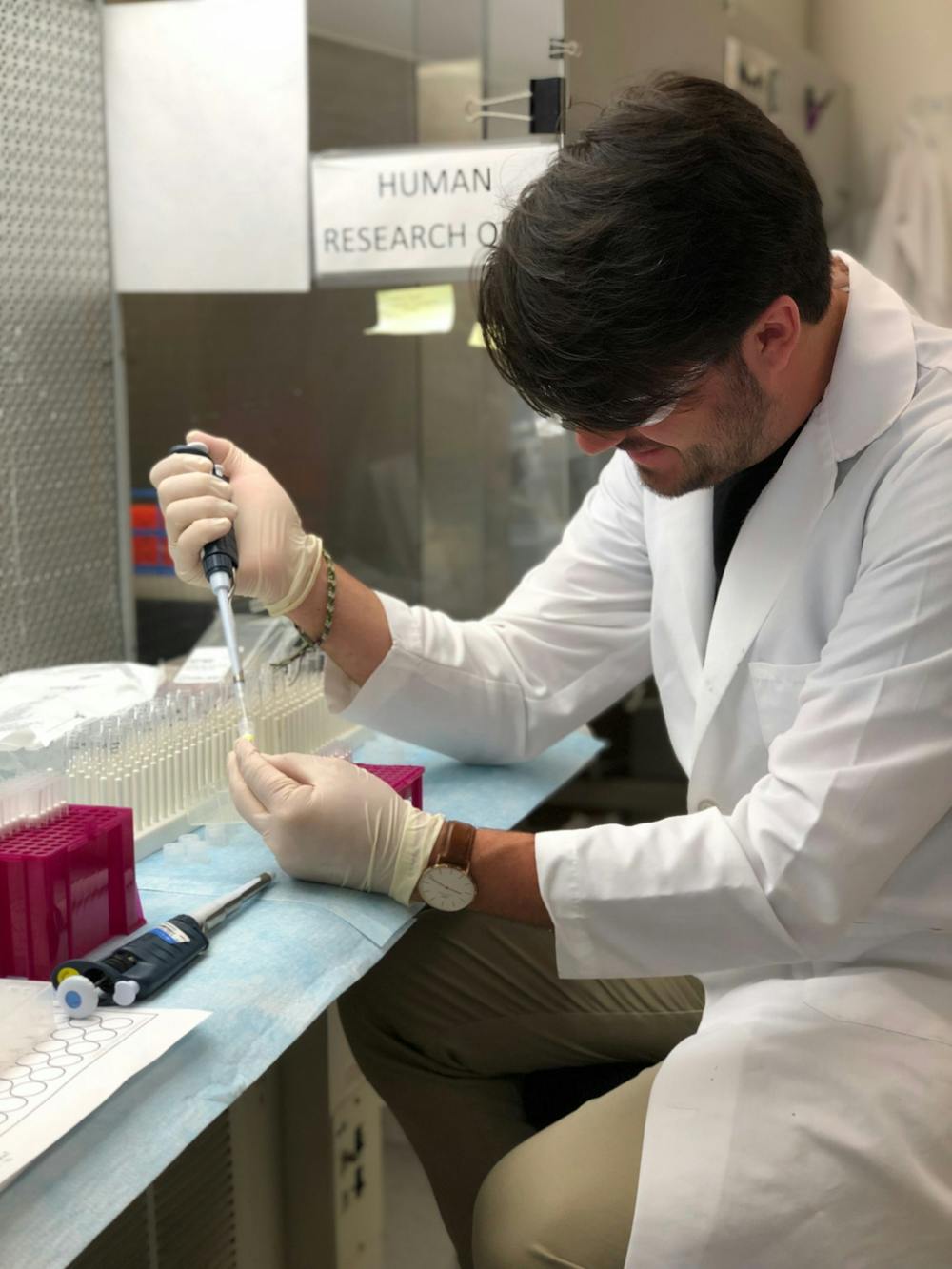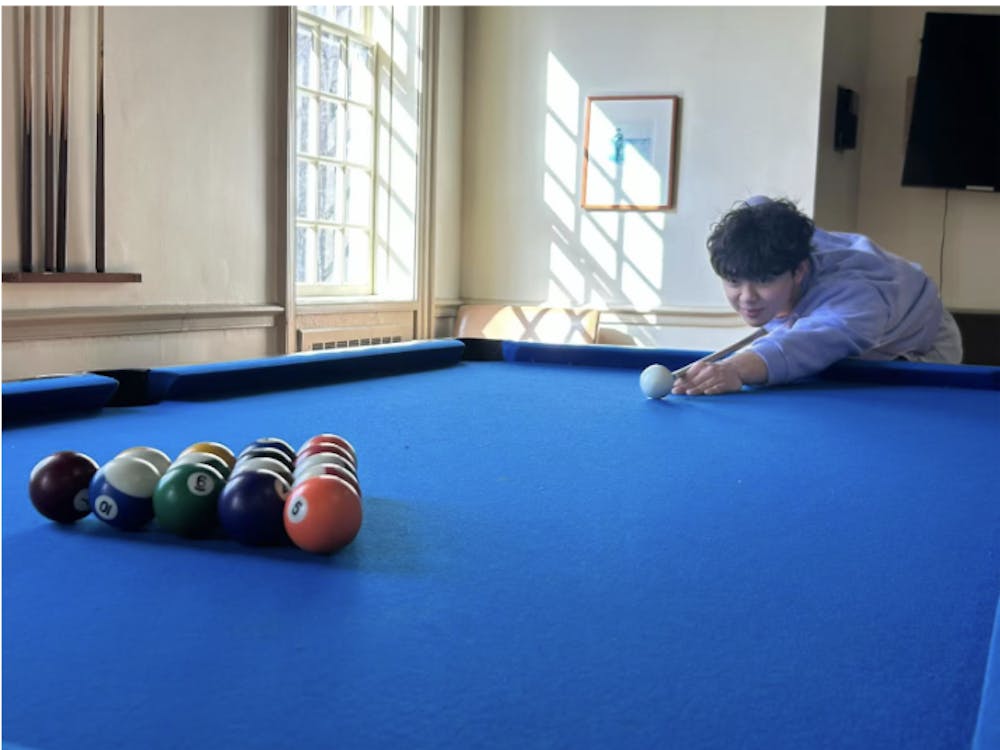Due to the ongoing coronavirus (COVID-19) pandemic, most labs at Hopkins — apart from those researching the virus — have closed. The closure has disrupted the work of many researchers in the Hopkins community.
Seth Blackshaw, a principal investigator (PI) in the Department of Neuroscience at the School of Medicine, discussed the impact of the pandemic on his lab in an interview with The News-Letter.
“Everyone's productivity has been greatly affected,” he said. “Everyone is having trouble focusing, is anxious about the situation and worries about how long the closure will last.”
Blackshaw said that a small number of essential personnel are allowed to come into the lab to check on mice and critical machinery. However, the lab is unable to begin new experiments.
He said people in his group are keeping busy during their time at home.
“Several senior postdocs in our group have recently completed manuscripts, and are in the process of making final revisions, or have studies that are nearly complete and need to be written up,” Blackshaw said. “Our group also conducts many experiments that generate large amounts of data that require many weeks to analyze fully. This will occupy the time of the other postdocs and most of the graduate students. Many folks in this group also have grants and fellowships they can write.”
In an interview with The News-Letter, Anagha Ashokan, a junior working in the Sujatha Kannan Lab, said that she has not been able to continue the research she would have done in her lab since it shut down. However, she has been able to do some work remotely.
“We’ve stopped all data collection and are now shifting our focus to data processing,“ Ashokan said. “I’m planning to contribute remotely by helping out with the data analysis.”
Some undergraduate researchers like Ryann Schutt, a sophomore working at the P3 Lab, have been able to continue much of their work as usual.
“I was doing a lot remotely anyway,” Schutt said. “It’s so interesting that everyone is now using Zoom because we’ve been using Zoom since I joined the lab.”
Schutt has recently been trying to create her own research project and is now determined to put in even more effort into her project.
“The pandemic has actually positively affected my personal goals. Now with a lot more time, I feel like I’m able to deeply dive into my research and actually learn from it, instead of just trying to get the job done.”
On the other hand, some undergraduate students are no longer able to work. Rachel Cohen, a sophomore undergraduate research assistant in the Spinal Fusion Laboratory at the School of Medicine, makes bone grafts for her research — something she can’t do remotely.
“We can read abstracts and past experiments to learn more, but it’s not something that could be done full-time,“ Cohen told The News-Letter.
The pandemic has similarly affected undergraduate researchers across the nation. Cole Pieroni is a Tauber Family Scholar in the Feldman Lab at the University of Michigan who was in the middle of his senior thesis project.
“I’m not sure how I will be able to contribute to the project now that I won’t be able to aid in data collection or the development of new trials and information-seeking ideology,” Pieroni said. “The plan is for me to begin typing my thesis and submit my work each week to my PI to check up on.”
The University is working to facilitate research that does not require the production of new data but uses pre-existing materials. Assistant Director of Academic Liaison and Special Collections Margaret Burri discussed her department’s efforts to facilitate the continuation of research projects and provide students with increased virtual access to print materials, videos and other online content.
“We have staff in our Reserves unit working closely with faculty to digitize print content as needed for e-reserves,” Burri stated. “The most important thing to remember is that we do still have a library, and librarians, even if it's now virtual. In that spirit, we want you to know that your librarians are still here for you, working online just like our students.”
Researchers at Hopkins are striving to continue their work and be hopeful amid the pandemic, while continuing to prioritize the health of the nation. Blackshaw said that his lab is going to continue to make the best of their situation.
“We will resume a regular schedule of twice-weekly lab meetings via Zoom, as well as regular virtual meetings,” Blackshaw said. “We will also try holding lab birthday parties and happy hours via Zoom.”
Blackshaw hopes that the pandemic will be an important learning experience for scientists and help them prioritize. Traditionally, he noted, scientists spend a lot of time traveling to conferences that have now been cancelled.
“We'll see how important all this running around really is. My guess is that we will see it cut back, and see much more in the way of virtual interaction,” he said.
Blackshaw also highlighted many of the problems that exist with scientific publication today, such as high costs and extensive review time before publication. Now, with the need for rapid data-sharing, preprint servers like bioRxiv are used more widely.
Preprint servers eliminate the costs and time associated with conventional journals, in addition to providing a more accurate review of submissions. Blackshaw hopes that scientists will continue to use preprint servers to communicate all biomedical research.
While Ashokan is disappointed that she will not be able to continue her project in the coming months, she emphasized the necessity of lab closures.
“It’s important that these measures are in place to limit the spread of the virus,” Ashokan said.

















